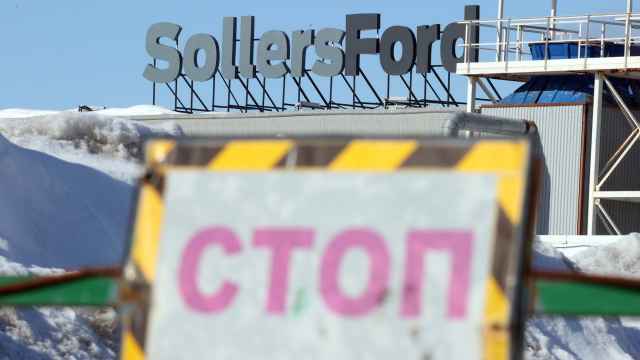New car sales sank almost 63% in Russia in March year-on-year, industry data showed Wednesday, as the West pummels the country with sanctions over Moscow's military campaign in Ukraine.
The massive drop in the car and light commercial vehicle segment comes after Russian troops entered Ukraine on Feb. 24, prompting severe Western sanctions, including a ban on spare parts export to Russia.
The Russian operation also caused the ruble to plummet in value, making Russians less likely to buy imported cars.
Only 55,129 units were sold last month, a 62.9% drop from the same period last year, according to the Association of European Businesses.
The association did not explain why the figures fell, as it would usually.
Sales of the country's most popular and affordable brand, Lada, whose Avtovaz manufacturer is majority-owned by the Nissan-Renault group, fell even more sharply by 64%.
Renault is under intense pressure to boycott Russia over Ukraine and considering whether to withdraw from Avtovaz.
It owns Avtovaz in partnership with Rostec, a state-owned defense conglomerate run by Sergei Chemezov, a sanctioned close ally of Russian President Vladimir Putin.
The Nissan-Renault group has tens of thousands of workers in Russia and spent billions updating Avtovaz.
Western carmakers have ventured into Russia to assemble cars over the past two decades as the country's economy expanded.
Renault said in late March that it was suspending production at its Moscow plant for Renault and Nissan models.
Numerous car makers have stopped sales of their cars or parts to Russia — including Audi, Honda, Jaguar and Porsche.
Makes that have halted Russian production include BMW, Ford, Hyundai, Mercedes, Volkswagen and Volvo.
Russia's year-on-year car sales for February were down 4.3%.
A Message from The Moscow Times:
Dear readers,
We are facing unprecedented challenges. Russia's Prosecutor General's Office has designated The Moscow Times as an "undesirable" organization, criminalizing our work and putting our staff at risk of prosecution. This follows our earlier unjust labeling as a "foreign agent."
These actions are direct attempts to silence independent journalism in Russia. The authorities claim our work "discredits the decisions of the Russian leadership." We see things differently: we strive to provide accurate, unbiased reporting on Russia.
We, the journalists of The Moscow Times, refuse to be silenced. But to continue our work, we need your help.
Your support, no matter how small, makes a world of difference. If you can, please support us monthly starting from just $2. It's quick to set up, and every contribution makes a significant impact.
By supporting The Moscow Times, you're defending open, independent journalism in the face of repression. Thank you for standing with us.
Remind me later.






